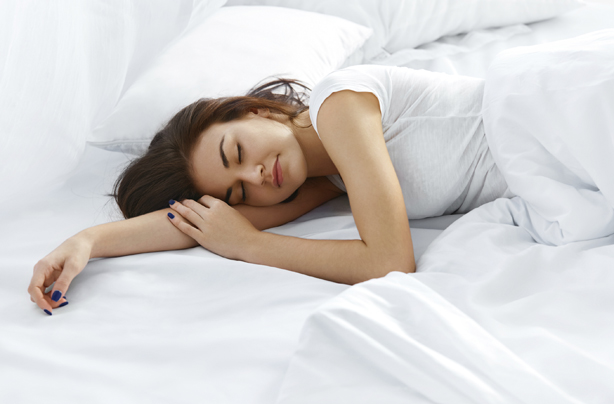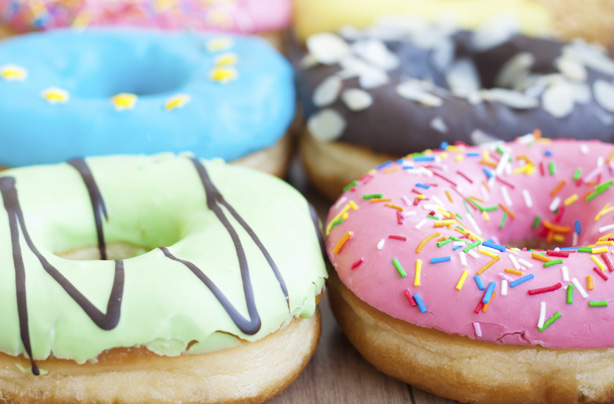Is the time you go to bed stopping you from losing weight?
A new study has shown that your bedtime could significantly impact your waistline...

A new study has shown that the time you go to bed could significantly impact your ability to lose weight.
The research, conducted by fitness tracker company Jawbone, shows that people who go to bed after 11pm are more likely to binge on unhealthy junk food and alcohol than their early-to-bed counterparts.
Those who go to bed late are said to consume, on average, an additional 220 calories per day - which could potentially add up to a whopping 1540 calories per week.
The company obtained the data from thousands of users of their Jawbone UP – a fitness wristband which monitors exercise and sleep patterns, and allows users to enter details of the food and drink they consume.
Jawbone data scientist Kristin Aschbacher commented, 'Early birds tended to eat healthier foods on the whole.
'This builds on our previous findings that people log more meals high in fats and sugars late in the evening.
'We hope this paints a picture of what a good night's sleep might do.'
GoodtoKnow Newsletter
Parenting advice, hot topics, best buys and family finance tips delivered straight to your inbox.

Research shows that you're far more likely to give into temptation after 11pm
So what time should you be going to bed?
We've already established that a pre-11pm bedtime is essential, but your allocated bedtime should really depend on how much sleep you need, and what time you need to get up in the morning.
According to the Department of Health, younger adults, aged 18-25, and middle aged adults, aged 26-64, require seven to nine hours sleep per night, whereas over 65s require seven to eight hours.
The time of day that you eat your meals can also have an impact on your waistline too - experts say that the best time to eat dinner is 6.14pm, to be precise.
And if you still find it tough to get out of bed in the morning despite your earlier bedtime, the good news is that your morning cuppa could help you shift the pounds as well. Recent evidence published in the European Journal of Clinical Nutrition has found that the key to keeping the weight you'd lost off could be coffee.
In a press release, the researchers explained, 'caffeine consumers were found to have a lower body mass index than those who consume little or no caffeine, and high caffeine intake has also been linked with weight loss.'
'Our research suggests it might also support maintenance of that weight loss.'
Trusted, informative, and empathetic – GoodToKnow is the ultimate online destination for parents. At GoodtoKnow, our mission is 'simple': we're trying to make sense of parenthood. On the site, you'll find everything you need for a happy, healthy family life. Our huge archive of content includes more than 18,000 articles and 1,500 how-to videos. These include expert-backed advice features on parenting, dealing with relationship changes after having a baby, self-care for mums and managing your family finances. We also feature tried-and-tested product reviews and buying recommendations for every stage of family life - from prams and Moses baskets to birthday gifts and top toys.